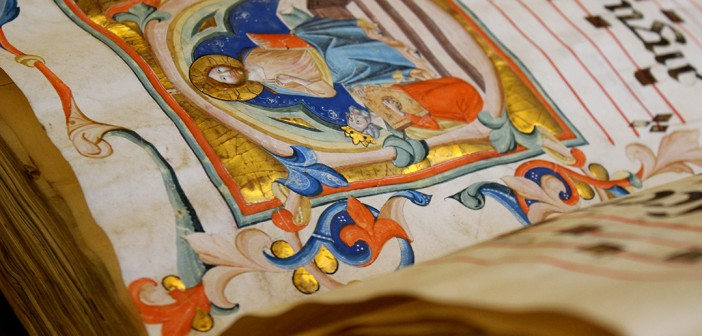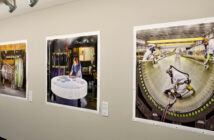A grant of $499,086 from the Council on Library and Information Resources on behalf of the Philadelphia Area Consortium of Special Collections Libraries will allow Lehigh University, along with 15 partnering institutions, to digitize its medieval archives to improve accessibility for scholars and individuals around the world.
This project will be a collaboration with several other institutions, including the University of Pennsylvania, Temple University, Free Library of Philadelphia and Bryn Mawr College. However, Lehigh has been chosen as the institution that will receive and manage the grant.
Each institution will be contributing its works to ensure the success of the three-year project. This will include digitization, cataloging of information and delivery through the website of these rare manuscripts to make them available to students and scholars in the greater Philadelphia area and around the world.
According to Lois Fischer Black, the curator at Lehigh’s Special Collections Library, Lehigh’s medieval manuscripts collection has been admired around the world. The collection houses handwritten, hand-colored manuscripts from the 1400s, including Virgil’s “The Aeneid.”
Black said she has received several requests for the medieval manuscripts at Lehigh, but the library doesn’t have the resources to reproduce the manuscripts in-house. Now, digitization makes reproduction possible, and it will be funded by the Andrew W. Mellon Foundation and the Council on Library and Information Resources, Black said. Although the money is necessary to complete the project, it is not possible to put a dollar value on these manuscripts, she said.
“We just think of them as their research value,” Black said. “They are priceless artifacts, so when you consider cultural heritage, they’re irreplaceable.”
The University of Pennsylvania will be taking the lead for the technical part of the project. It has previously digitized its own collections and will be assisting with the digitization of other institutions’ manuscripts, such as the University of Delaware. Because of logistics and the distance between Lehigh and the other institutions, Lehigh will be outsourcing this work to Back Stage Library Works, a company the university has used in the past for similar projects.
Suzanne Edwards specializes in medieval studies. When working on her own book, Edwards traveled to London to obtain the resources required for her research. She then had to read, decode, transcribe and translate them. According to Edwards, having manuscripts digitized and available makes it easier for scholars to check their work without having to travel.
Edwards said she believes this project will encourage the use of medieval resources for students, as well.
“In some ways there’s no substitute for seeing the material in person,” Edwards said. “But I think having digital access can help people get to a place where they are looking at the physical object with a sense of confidence and knowledge of what they’re looking at.”
Christine Roysdon, director of Library Collections and Scholarly Communications at Lehigh, emphasized the significance of this project as a collaborative effort, calling the grant a game changer.
“At the present we receive requests for individual images that scholars somehow learn that we own, and we scan and share those,” Roysdon said in an email. “Now they will be able to discover and capture images for their work without intervention and delay.”
Lehigh’s Special Collection Library is located in Linderman Library and is home to rare medieval artifacts, along with Lehigh’s own historical artifacts.






Comment policy
Comments posted to The Brown and White website are reviewed by a moderator before being approved. Incendiary speech or harassing language, including comments targeted at individuals, may be deemed unacceptable and not published. Spam and other soliciting will also be declined.
The Brown and White also reserves the right to not publish entirely anonymous comments.